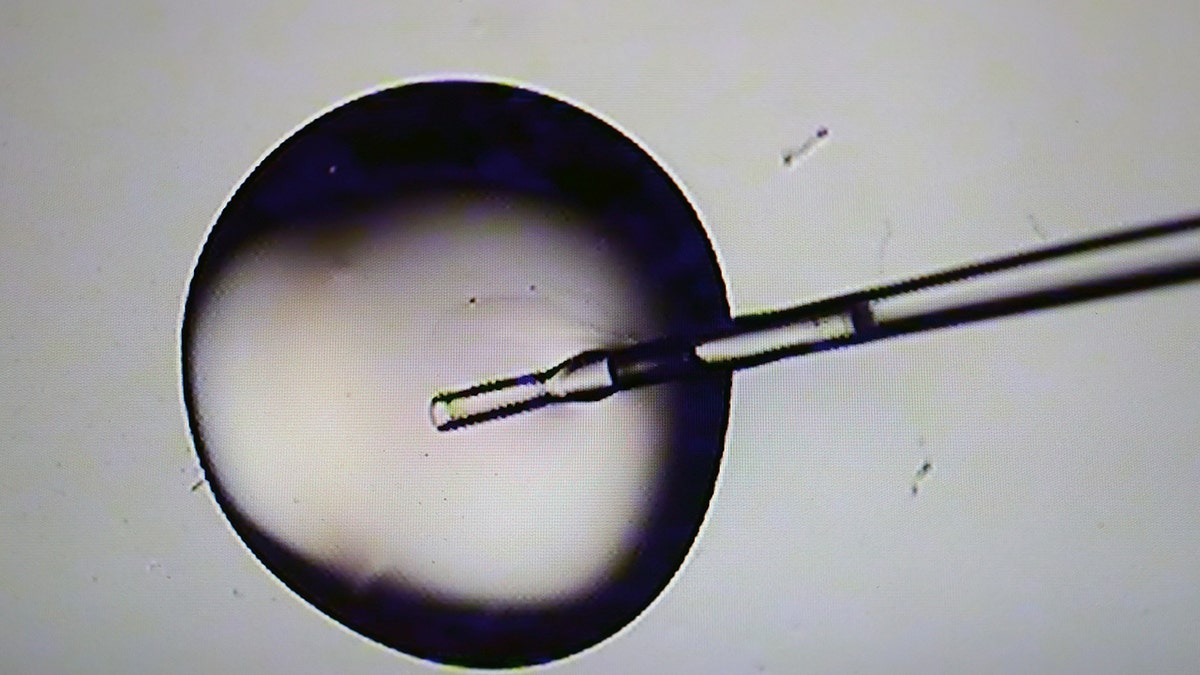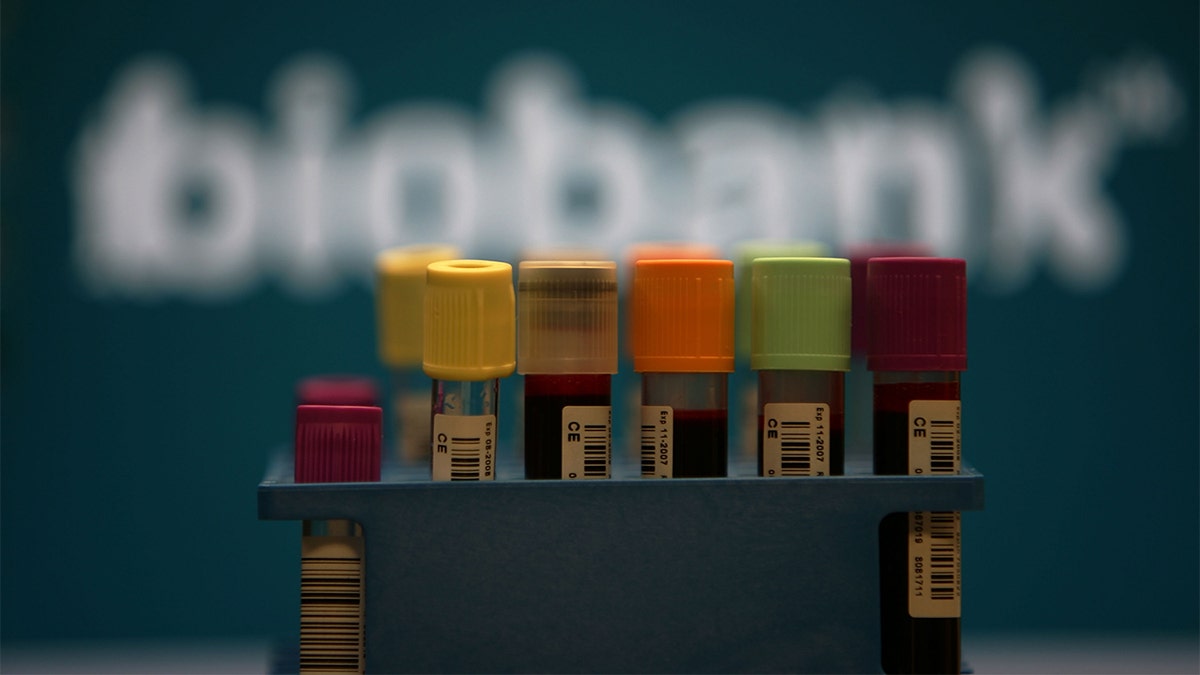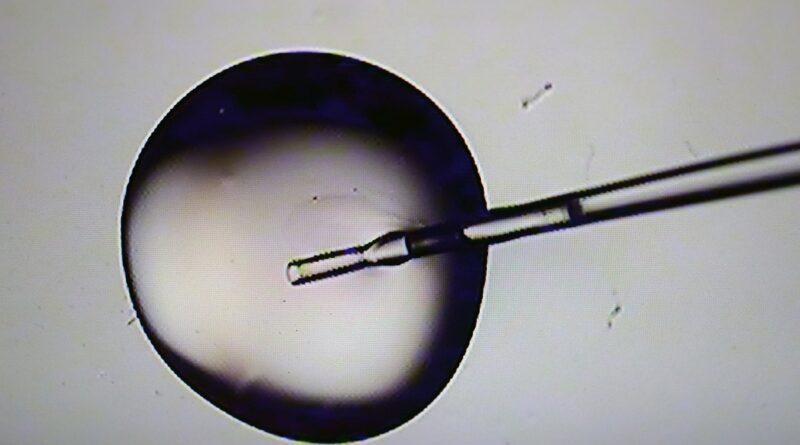The birth of a superbaby? US startup offering genetic IQ testing for high-net-worth individuals: report
A US startup is reportedly offering wealthy couples the chance to test their embryos for IQ and other genetic traits, which has raised ethical concerns.
Heliospect Genomics is paying $50,000 to test 100 embryos and says its technology can help couples undergoing IVF choose children with an IQ six points higher than those born naturally, The Guardian reports.
The company has already worked with more than a dozen couples, and the hidden videos analyzed by the agency are revealing.
“Everybody can have all the kids they want, and they can have disease-free, smart, healthy kids; it’s going to be great,” CEO Michael Christensen said on the phone. video in November 2023, according to the report. The call was reported by an undercover investigator for Hope Not Hate, an antifascist group that works to “expose and oppose far-right extremism.”
FOUNDER’S GIRLS ACCEPTABLE ‘BEHAVIOR’, UK LABOR COURT DECIDES.

A small view of the cryo solution during embryo prep in the IVF laboratory at Brigham & Women’s Hospital. (David L. Ryan/Boston Globe via Getty Images)
In the call, Heliospect employees are reportedly running prospective parents through genetic selection tests announced by the company. One worker explained how couples could use polygenic scoring to rank 100 embryos based on “IQ and other negative traits that everyone is looking for,” including sex, height, risk of obesity and the risk of mental illness, according to The Guardian.
Heliospect says its prediction tools use data from the UK Biobank, a publicly funded genetic database with half a million British volunteers. The database allows researchers and scientists around the world to access “health-related research that is in the public interest.”
United Kingdom law prohibits parents from selecting embryos on the basis of a predicted high IQ, but the practice is now legal in the US, even if the technology is not yet commercially available.
Geneticists and bioethicists have told The Guardian that the prospect of selecting embryos for good genetic characteristics is questionable because it would confirm the concept of “high” and “low” genetics. Hope Not Hate has continued its reporting, linking several Heliospect employees with people and articles that are said to have promoted so-called scientific racism, or the alleged belief that human races have status. they differ in the nature of physical, mental and behavioral development determined by their genes.
TRUMP DEFENDS IVF TREATMENT

US-based Heliospect Genomics says it can help parents screen embryos to predict high intelligence and other desirable genetic traits. (iStock)
Katie Hasson, deputy director of the Center for Genetics and Society in California, warned in comments to The Guardian that embryo selection technology could create “the belief that inequality comes from biology rather than causes of society.”
Heliospect Genomics did not immediately respond to Fox News Digital’s request for comment.
Heliospect executives told The Guardian that the US-based company operates within the limits of all applicable laws and regulations. The company said it is currently in “precautionary mode” and is developing its services ahead of a planned public launch. They also said that couples who tested a few eggs were charged $4,000 for the service.
In the calls reported by Hope Not Hate, the Heliospect team explained how its “polygenic scoring” service uses algorithms to analyze genetic data provided by parents to predict specific characteristics of embryos. The company does not offer IVF services, according to The Guardian.
Christensen gave a big picture of how the technology could improve, suggesting that “eggs grown in the lab could allow couples to create industrial-scale embryos – a thousand, or even and a million – where elites can be elected,” the report said.
According to The Guardian, he suggested that future technology may be able to assess personality types, including the characteristics of the “dark triad”, namely Machiavellianism, narcissism and psychopathy.
AI BABIES: NEW TECHNOLOGY HELPS IVF DOCS SELECT THE BEST EMBRYOS FOR IVF.

Blood samples taken from volunteers were labeled and ready for storage at the UK Biobank on April 17, 2007, Manchester, England. (Christopher Furlong/Getty Images)
He added: “Beauty is something that many people ask about.”
Heliospect told The Guardian that it does not promote industrial egg or embryo production or humane selection and that it does not intend to offer personal testing services.
Among Heliospect’s key employees is Jonathan Anomaly, a controversial scholar who has championed so-called “liberal eugenics,” or the idea that parents use genetic technology to improve their children’s chances. see.
Anomaly told The Guardian that as a professor of philosophy, he published provocative articles intended to provoke controversy and that “liberal eugenics” was a term accepted by bioethicists.
Reports indicate that Heliospect received data from the UK Biobank in June 2023. In its application, the company said it planned to use advanced methods to improve the prediction of “complex characteristics.” But Heliospect did not disclose the embryos as a planned commercial use or talk about IQ, The Guardian reported.
CLICK HERE TO GET THE FOX NEWS APP
UK Biobank told the Heliospect agency that the use of its data appeared to be “fully compliant with our access conditions.”
Experts have suggested to The Guardian that restrictions on access to data such as the UK Biobank may need to be strengthened due to concerns about fetal testing.
“UK Biobank, and the UK government, may want to think hard about whether they need to impose new restrictions,” said professor Hank Greely, a bioethicist at Stanford University.
Heliospect has stressed that its use of UK Biobank data is lawful and complies with relevant regulations. The company told The Guardian that it supports addressing concerns about pre-embryonic testing through public education, policy discussions and informed discussions about the technology, which it strongly believes has and the opportunity to help people.
#birth #superbaby #startup #offering #genetic #testing #highnetworth #individuals #report
